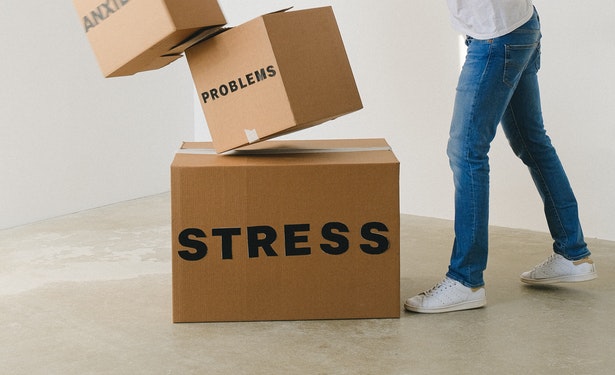How to Recognize Stress Symptoms in Men
How to Recognize Stress Symptoms in Men
By
Jerry Kennard, PhD
Updated on April 26, 2021
Medically reviewed by
David Susman, PhD
Stress uniquely impacts each individual. However, there is evidence that, in general, men and women have different psychological and biological responses to stress. In comparison to women, men have a stronger stress response and may react with higher levels of aggression and more unhealthy coping behaviors, all of which can impact their physical health.
While some amount of stress may be motivating, chronic stress can lead to a slew of mental and physical issues that can impact your overall quality of life. Because men and women may react to and process stress differently, it's important to recognize the symptoms in men so they can manage stress effectively.
Physical Stress Symptoms in Men
In general, stress can be experienced physically and psychologically, with both expressions of stress having an interrelated relationship.
For example, research has shown that chronic stress can lead to decreased immune function and an increased risk of infection. One study found that stress not only slowed wound healing, but it also led to unhealthy behaviors such as heavy alcohol use and poor self-care.
Physical symptoms of stress may include:
- Chest pain
- Pounding heart
- High blood pressure
- Shortness of breath
- Fatigue
- Muscle aches, such as back and neck pain
- Headaches
- Dizziness
- Clenched jaws and teeth grinding
- Tightness, dryness, or a feeling of a having lump in your throat
- Indigestion
- Constipation or diarrhea
- Increased perspiration
- Stomach cramps
- Weight gain or loss
- Skin problems
Do not ignore physical issues even if you believe they are solely stress-related. It's always best to check in with your doctor to make sure you are not experiencing any underlying medical conditions and/or mental health disorders.
Psychological Stress Symptoms in Men
Recognizing psychological symptoms of stress early on may help prevent your stress from escalating to a chronic level. Psychological symptoms of stress may include:
- Sadness
- Depression
- Crying
- Withdrawal or isolation
- Insomnia
- Mood swings
- Increased or diminished sex drive
- Worry
- Feeling restless or anxious
- Irritability, anger, or decreased anger control
- Changes in eating
- Feelings of insecurity
- Decreased productivity
- Changes in close relationships
- Increased smoking
- Increased use of alcohol and drugs
Stress in Men vs. Women
Stress tends to manifest differently in men and women for a variety of reasons including differences in biological factors, immunity, sex hormones, and fight-or-flight responses. Because of these differences, research indicates that in general:
- The hypothalamic-pituitary-adrenal axis (stress response system) and the sympathetic nervous system have a greater response in men vs. women when exposed to the same stressor. This puts men more at risk for experiencing an increase in aggression, cardiovascular disease, and decreased immune functioning.
- Stress tends to activate different areas of the brain in men and women. When exposed to the same stressors, men experience a stronger stress response than women and have a higher amount of cortisol measured in their saliva.8
- Because of differences in brain responses, men may be more likely to react with the fight-or-flight response under stress compared to women, who show more of a pattern of tend-and-befriend. This increases men's susceptibility to high levels of stress during certain situations when compared to women.
- Chronic pain may impact men differently because of the relationship between testosterone, stress, and pain. Testosterone mitigates feelings of pain. However, stress can decrease levels of testosterone and increase cortisol, thus intensifying feelings of pain.1
Keep in mind that each individual's unique culture, religious beliefs, upbringing, early experiences of childhood trauma (if applicable), and genetic factors can all play a role in how stress is processed in men and women.
Men have a lower incidence of reported mental health disorders when compared to women. However, they are also less likely to seek support from their doctor or a mental health provider. Men are also more likely to die by suicide than women.
Coping With Stress
When it comes to managing stress, the first step is recognizing it. If the effects of stress are interfering with your life, consult your doctor. They can give you advice, address any medical issues, and make referrals to other professionals, such as a counselor. Stress management is essential to your well-being and is something that should be prioritized.
Content source: https://www.verywellmind.com/recognizing-stress-for-men-2329008

